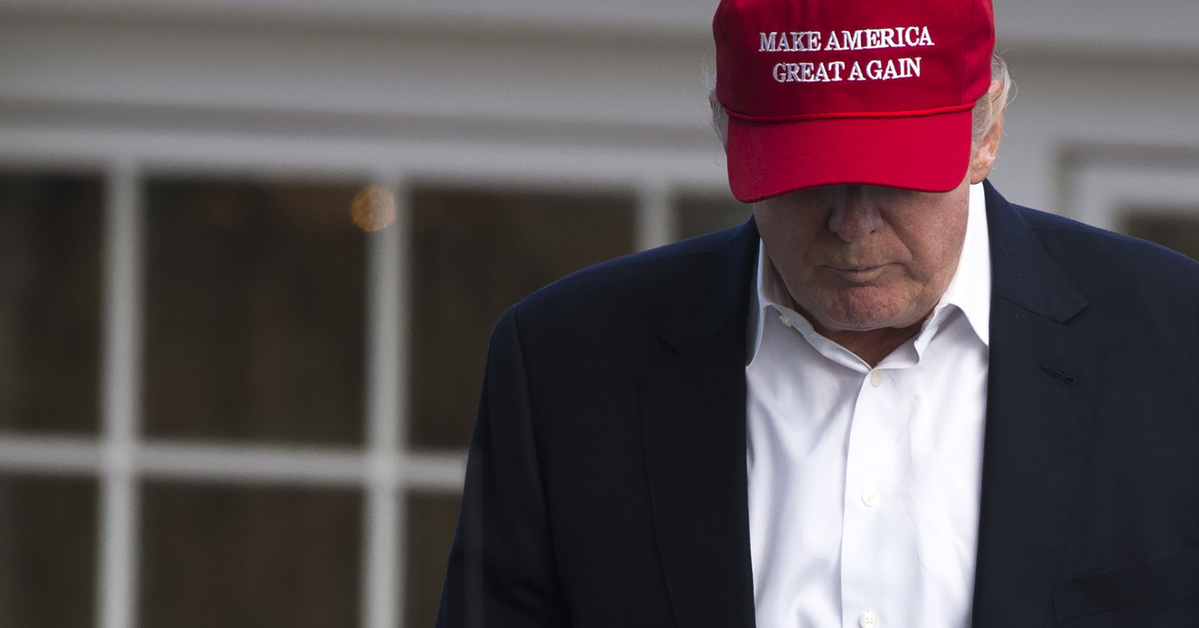
President Donald Trump‘s 2020 re-election effort was cited by the Federal Election Commission (FEC) on Monday for accepting hundreds of “excessive” campaign contributions in violation of federal law.
Addressed to “Donald J. Trump for President, Inc.” Treasurer Bradley T. Crate, the 4-page letter notes that “your report discloses one or more contributions that appear to exceed the limits set forth in the Act.”
That’s a bit of an undersell. The campaign finance boilerplate language contained in the letter is followed by exactly one hundred pages of “Excessive, Prohibited, and Impermissible Contributions” from dozens of individuals.
The letter helpfully contains the law on point codified at 52 U.S.C. § 30116:
An individual or a political committee other than an authorized committee or qualified multi-candidate committee may not make a contribution(s) to a candidate for federal office in excess of $2,700 per election. An authorized committee may not make a contribution(s) to a candidate for federal office in excess of $2,000 per election. A qualified multi-candidate committee and all affiliated committees may not make a contribution(s) to a candidate for federal office in excess of $5,000 per election. The term “contribution” includes any gift, subscription, loan, advance, or deposit of money or anything of value made by any person for the purpose of influencing any election for federal office.
In other words, for the 2017-2018 election cycle, individual contribution limits max out at $2,700 per candidate per cycle–a cycle means a primary, special and/or general election. And each individual named in the FEC’s list supplied to Trump’s campaign chair appears to have donated far in excess of the statutory limits–with many donors contributing double and triple the amounts allowed by federal law.
The Trump 2020 campaign has, as of Tuesday’s filing, accepted those excessive campaign contributions.
The letter also spells out the path for Trump’s campaign moving forward.
“If any apparently excessive contribution in question was incompletely or incorrectly disclosed, you must amend your original report with the clarifying information,” the FEC’s Carolina Mongeon notes. “If any contribution you received exceeds the limits, you may have to refund the excessive amount.”
The Trump campaign has been handed a five-day deadline to comply with the agency’s demands; proof of their amended filing and compliance is due by Saturday, November 17.
The FEC also offered the Trump campaign a warning going forward [emphasis in the original]:
Please note, you will not receive an additional notice from the Commission on this matter. Adequate responses must be received by the Commission on or before the due date noted above to be taken into consideration in determining whether audit action will be initiated. Failure to comply with the provisions of the Act may also result in an enforcement action against the committee. Any response submitted by your committee will be placed on the public record and will be considered by the Commission prior to taking enforcement action. Requests for extensions of time in which to respond will not be considered.
Effectively, the FEC is threatening a law enforcement response if the defects–the acceptance of extremely too much cash–are not cured in the Trump campaign’s campaign finance filings by this Saturday.
As Law&Crime noted in a previous analysis:
The FEC has exclusive civil enforcement jurisdiction over federal campaign finance law and is thus the primary agency dedicated to enforcing such laws. At the same time, however, the DOJ has concurrent criminal jurisdiction over more egregious campaign finance law violations.
Whether a DOJ referral here–and concomitant criminal liability–is likely here remains an open question, particularly depending on how the Trump campaign addresses these contributions. And, it should be emphasized that campaign finance law violations are effectively run-of-the-mill because the United States, at the federal level, doesn’t really prioritize enforcement of such laws.
But, as the Center for Public Integrity’s campaign finance expert Dave Levinthal notes, 100 pages worth of impermissible contributions is quite a bit of unlawful cash–even by presidential campaign standards.
[image via Saul Loeb, AFP/Getty Images]